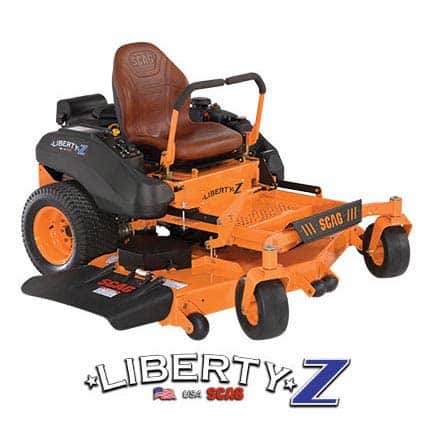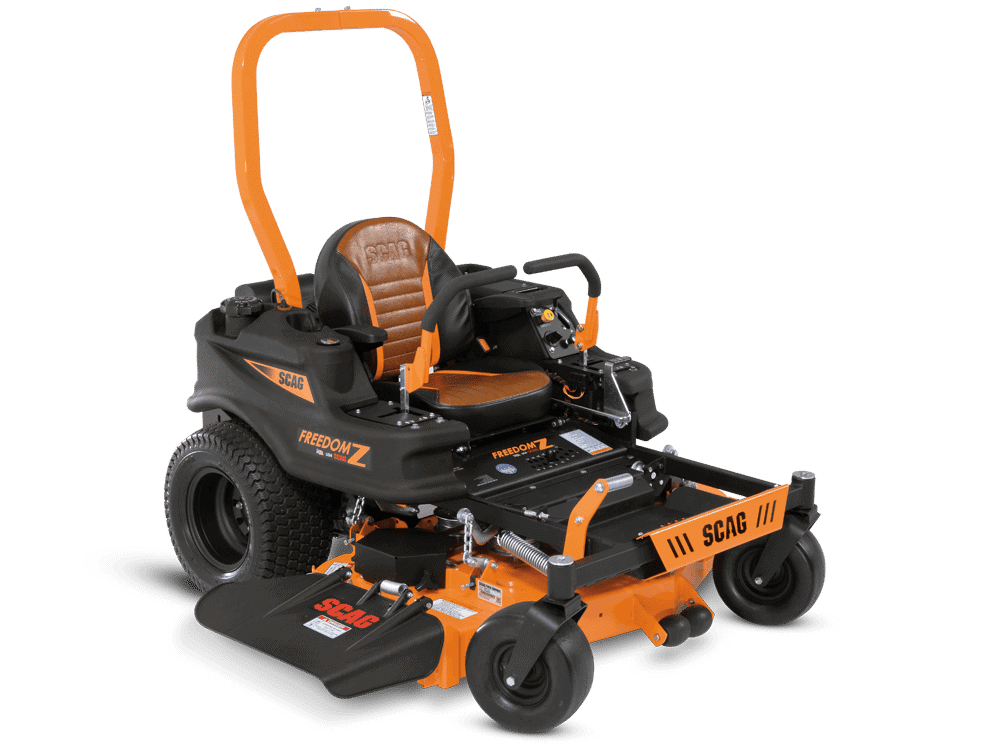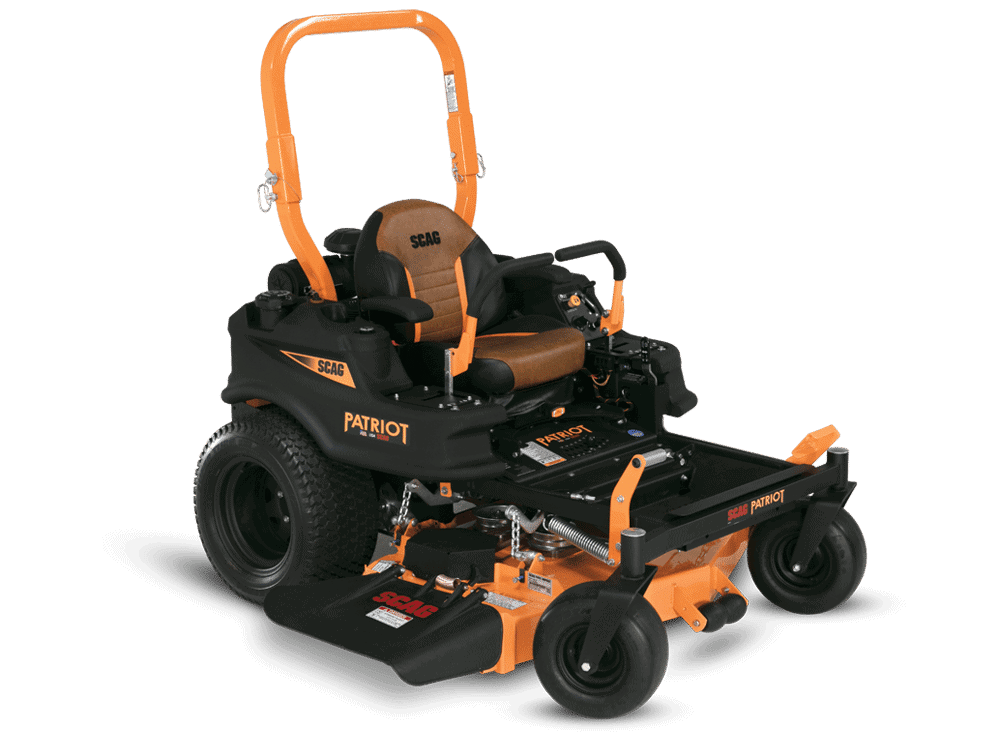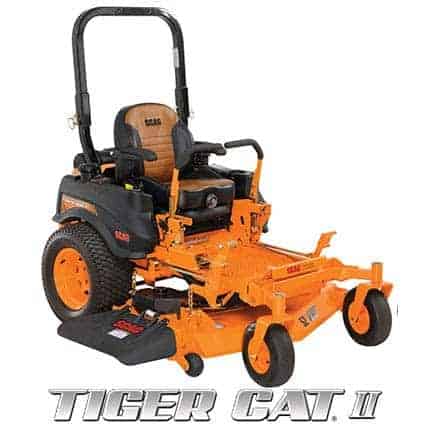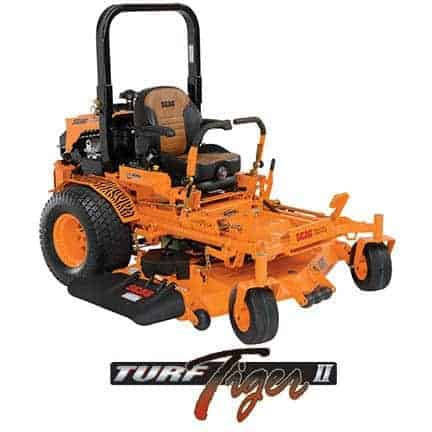SCAG Zero Turn Mowers Australia:
Highest quality, best built, best cutting commercial grade lawnmower
Zero Turn Mower Buying Guide: What To Look For When Purchasing a Zero Turn Mower
Like cars and trucks, there’s a world of difference between the different types of Zero Turn Mower options available on the market today. Some are designed as more entry-level options, others trend more towards the midgrade of the scale, and others still are ideally suited to larger landscaping operations and commercial mowing outfits.
To help you find the perfect Zero Turn Mower for your needs and your budget, though, we’ve put together this quick guide.
Let’s dig right in!
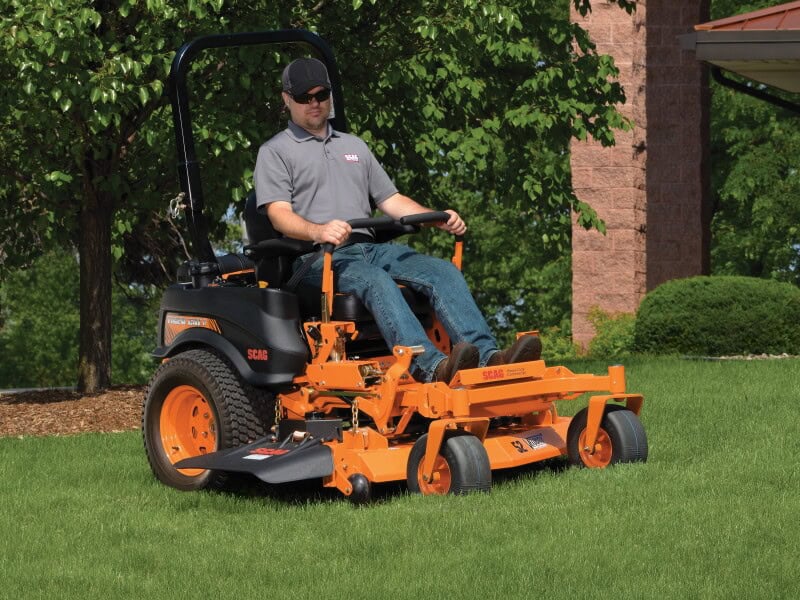
Why Buy a Zero Turn Mower?
Zero Turn Mower options promise to help you mow your lawn 50% of the time a traditional mower would have taken, with better power, better performance, and better controllability than anything else you’ll find outside of these options.
Is that true, though?
Are Zero Turn Mowers really head and shoulders above every other lawn mowing technology out there?
In our experience – and the experience of our customers – 100%!
With a new Zero Turn Mower you’ll be able to enjoy:
- A much higher mowing precision thanks to the increased visibility and control you get
- A tighter turning radius, improved mobility, and a dramatically reduced overall mowing time to completion
- Better control, particularly on slopes, over your mower which increases safety significantly
… And that’s just the tip of the iceberg!
(We also think you look pretty cool zipping along on a Zero Turn Mower, and the kids in the neighborhood will probably think so too!)
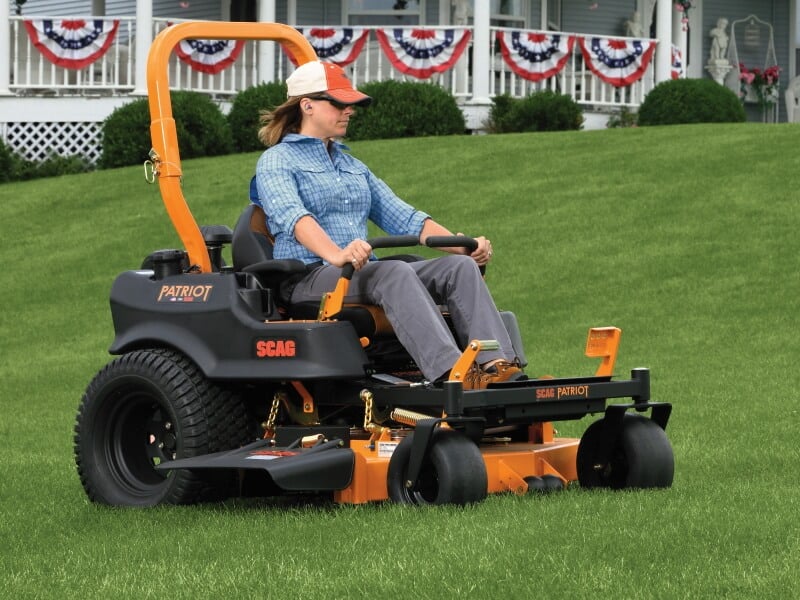
Compare Our Zero Turn Mower Range
Zero Turn Mower Buying Specifications to Consider
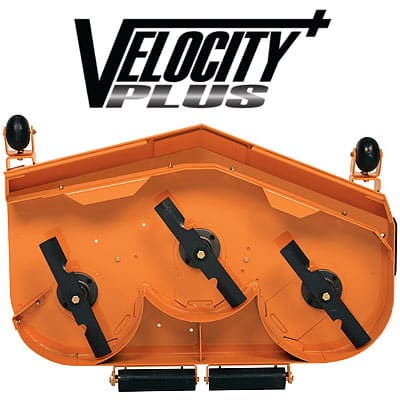
Deck Size
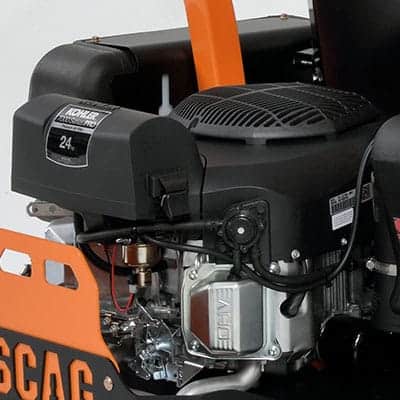
Engine Size and Horsepower
Because these mowers are considerably larger than your everyday push mower (and even most riding mowers/lawn tractors) they have bigger horsepower demands and require larger engines.
Different zero turn mowers options have different configurations (with smaller, entry-level Zero Turn Mowers options having smaller engines and less horsepower and larger, professional grade options having more horsepower and larger engines), but it all comes down to the kinds of capabilities you’ll need to maintain your property.
If you’re going to be cutting nothing but grass, the odds are pretty good you can get away with a smaller engine with less horsepower and not notice anything different.
If, on the other hand, you’re going to be doing a bit of “off-road” work with your Zero Turn Mower – chewing through leaves, small sticks and branches, going up and down uneven terrain, etc. – the odds are you’ll want something a little beefier to get you through.
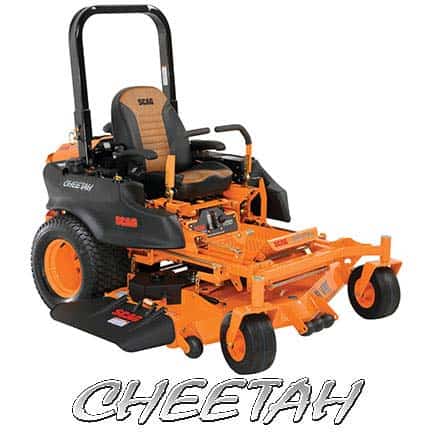
Speed
Top-quality Zero Turn Mowers have been engineered to match the running speed of the mower with the blade speed to create clean and consistent cuts with every pass, regardless of how quickly (or how slowly) you choose to move across your lawn.
At the end of the day, though, every Zero Turn Mower option is going to be a whole lot faster than any of the traditional lawnmowers you used in the past – sometimes by more than 70%!
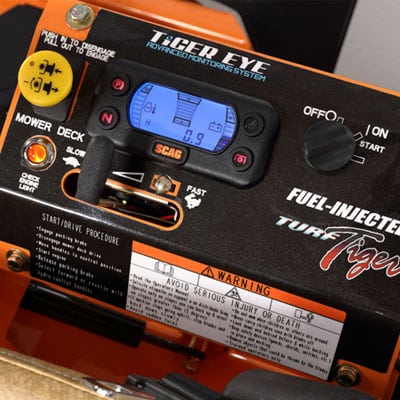
Controls
Pull this lever this way and push that lever that way and you’ll be able to maneuver your Zero Turn Mower with ease, right?
Well, while these dual lever action Zero Turn Mower options still exist (and remain highly functional for those willing to kind of retrain their brain when it comes to lawn care) new modern options have introduced some pretty exciting control features that are changing things up a bit.
The only thing you’re unlikely to find in top-quality mower controls is a traditional steering wheel. There’s just not enough dexterity in these controls to accomplish true Zero Turn Mower movements. The important thing here is to find something you feel comfortable with, something that you feel in total control of.
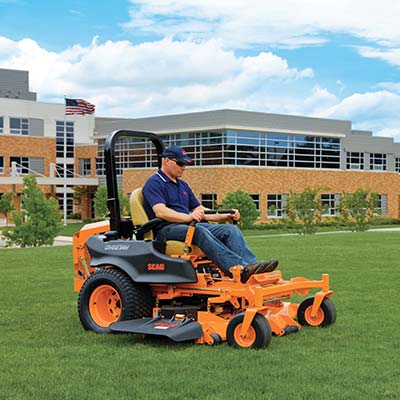
Price
You’ll want to figure out what your “comfort number” is early on in the research process. Expect to spend at least a few thousand dollars on a quality Zero Turn Mower option, sometimes as much as $7000 or more depending on the specific make, model, and special features you’ll be investing in.
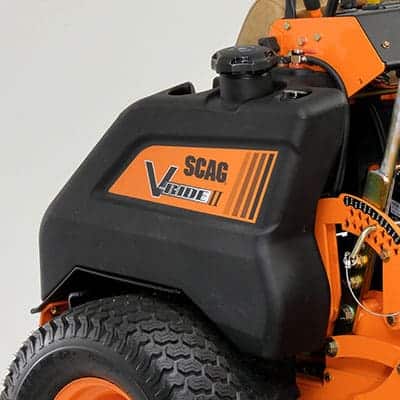
Fuel
Far too many people get the green light on spending X amount of money upfront on a brand-new Zero Turn Mower, never realizing that the cost of ownership is going to be quite a bit higher than that – in large part because of fuel costs.
Make sure that you work this into your budget ahead of time so that you know what you’re looking to spend annually owning, operating, and running your new Zero Turn Mower.
Frequently Asked Zero Turn Mower Questions
What Are The Advantages Of A Zero-Turn Mower?
Maneuverability with a Zero Turn Mower is top-tier. You’ll mower more efficiently, you’ll have more control, and you’ll be able to mow a property between 50% and 70% faster than you used to be able to before.
These mowers also happen to be a whole lot more comfortable (and a lot more fun to use) than your traditional lawn mowing technology, too.
How Does A Zero Turn Mower Work?
Zero Turn Mower technology repositions the steering wheels of the mower from the front (which is where lawnmowers, cars, motorcycles, bicycles, etc. have their steering wheels located) to the rear wheels.
This allows you to pivot on a dime with a lot more dexterity than you’re able to with a traditional front wheel steering configuration.
How Do You Drive A Zero Turn Mower Straight?
Steering your Zero Turn Mower in a straight line is pretty simple and straightforward, though it may not be quite as intuitive as it might be with a steering wheel on a riding lawnmower.
All you really have to do is apply equal pressure (forwards or backwards) on the dual control arms, enough on both sides to keep you moving in a straight line. It’ll take a little practice to find your “groove”, but once you have the feel, you’ll have it for life.
How Do You Adjust The Speed On A Zero Turn Mower?
The easiest way to control the speed of your Zero Turn Mower is to apply more or less pressure to the steering arms.
More pressure (forwards or backwards) is going to result in you moving faster, with less pressure in either direction having you moving quite a bit slower. This back and forth pressure can allow you to change speeds effortlessly and on-the-fly, but can also help you to change speeds on one side of the mower or the other to execute faster and tighter turns as well.
Do Zero Turn Mowers Work On Hills? What Is The Best Zero Turn For Hills?
For the most part, Zero Turn Mower options aren’t going to have any trouble whatsoever with hills – so long as the incline or the decline doesn’t exceed 15° or so.
The exact incline and decline specifications that a Zero Turn Mower can handle safely will be shared from the manufacturer either in the owners manual or prominently on the mower itself.
Are Zero Turn Mowers Dangerous?
For one reason or another (usually new stories involving “joy riders” using a Zero Turn Mower in anything but a safe manner) this lawn equipment has gotten a bit of a bad reputation for being dangerous.
Truth be told, a zero turn lawnmower is no more dangerous than any other piece of lawn equipment. Sure, you can injure yourself with a Zero Turn Mower – quite seriously, at that – but if you use it responsibly, safely, and never push the machinery beyond its capabilities you have very little to worry about.
Why Do Zero Turn Mowers Cut Faster?
Not only is the overall top end speed of a Zero Turn Mower quite a bit faster than traditional lawnmowing equipment, the maneuverability and mowing deck of a zero turn lawnmower are also much improved compared to traditional options.
The Zero Turn Mower capabilities allow you to turn on a dime without any hesitation, saving time and improving maneuverability. The mowing deck on these lawnmowers is also almost always significantly larger than what you’d have on a traditional system, making quicker work of the same stretch of lawn you have been mowing all along.

